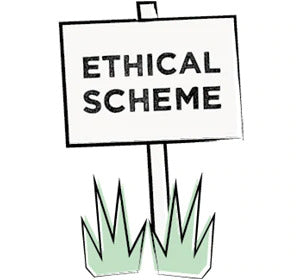
Welcome to the world of decaf tea leaves! It’s a magical place, do stay and have a look around.
We know when lots of you hear the word ‘decaffeination’ it’s met with a healthy amount of questioning – and quite right too. Just how do you decaffeinate tea? Doesn’t it damage the leaves? And aren’t there lots of nasty chemicals involved? The short answer is – not on our watch! We’re here to debunk all the decaf myths and introduce to our brand new blend – decaf english breakfast.
what is caffeine?
Simply put, caffeine is a naturally occurring stimulant that helps increase alertness and attention. You’ll find it coursing through our trusted pal, the camelia sinensis (also known as the tea bush) making all ‘true’ teas caffeinated! Find out more about what makes a tea, a tea here.
what is decaf tea?
To decaffeinate something means to literally strip the naturally occurring caffeine from it – in our case, tea! This can be done chemically or with more natural methods using CO2 (our preferred method) – so you can enjoy a mug first thing in the morning, or last thing at night.
hang on, chemicals?
Yep, that’s right. For a long time, decaffeination meant using chemical solvents like methylene chloride and ethyl acetate (gosh, look at us with the big words!) which bind to caffeine and then can be removed together. While this process only leaves trace amounts behind, we’re not fond of the idea of using the same stuff that’s in paints, varnishes & perfumes on our top quality teas – so we don’t!
so what's the CO2 method?
Ooh, we know this one! That's the method we use. Did someone say time for a super fun science explanation!? We’ll need a bit more room to fully geek out – we’ll crack out the whiteboard and get our wildest marker pens ready. When you’re ready to learn more about the CO2 method, click here.
how much caffeine is left in decaf tea?
Over 98% of the caffeine gets removed from the tea leaves – and that 2% is basically a buffer, just in case of variation in the harvest. This tiny percentage makes decaf different from a ‘naturally’ caffeine free drink. For the average tea lover, that 2% is negligible as it’s so low you likely wouldn’t feel any impact so you can enjoy a mug first thing in the morning, or last thing at night. Suffer from a caffeine allergy? Take a look at our caffeine free range for a 100% caffeine free experience.
how does it compare to caffeine in regular teas and coffee?
All true teas (that’s anything that comes from the camelia sinensis plant) will contain caffeine - but the process they go through, as well as where it’s grown and how it’s brewed, will also have an impact. Generally speaking, your average cup of black tea will have around 75mg, whereas green teas contain nearer 30mg. Coffees clock in higher, from 95-200mg depending on how they’ve been prepared. And decaf tea? Well, that’s around 2mg. Pretty impressive, right?
so... what does decaf taste like?
Ah, the million pound question! Decaffeination will always have an impact on flavour – you’re meddling on a molecular level, after all. But fear not, your brew will taste just as good as our teas always do - thanks to the mighty tastebuds of teapigs co-founder and tea taster, Louise! Using her powers of tea blending wizardry, Lou’s formulated a brand new blend of Kenyan and Ceylon black teas which still taste rich, bold, and malty. It even works brilliantly with milk - total magic.

Sounds good so far? We’ll make it even better.
For every pack of decaf english breakfast sold, we’ll also make a donation to our ethical scheme to help support tea growing communities in Africa – just like we do for our everyday brew and kombucha, too! We also match donations our customers make on our website and run regular fundraising efforts. Thanks to all your contributions, we've raised over £550,000 together and we're keen to do more! Learn more here.







